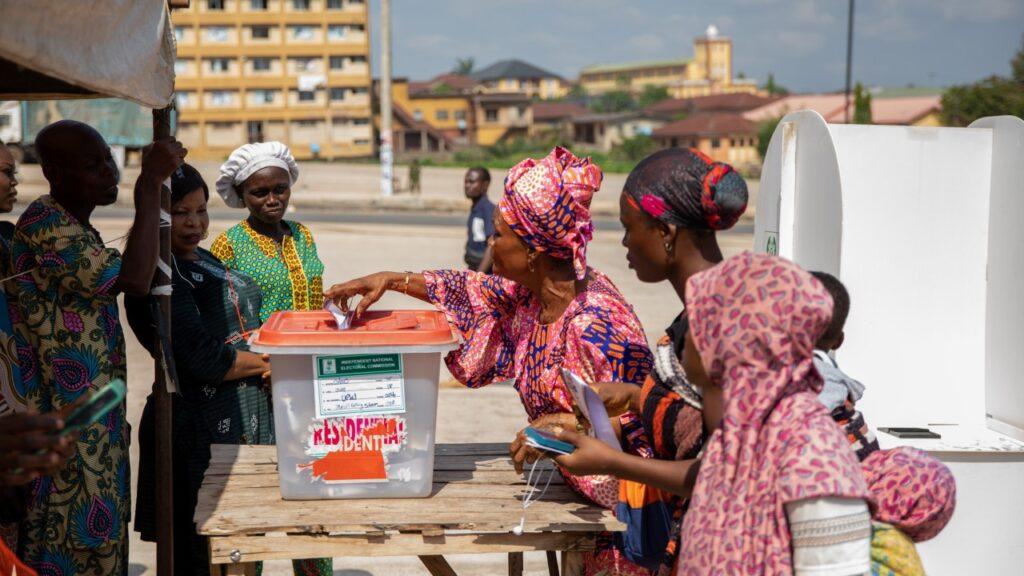As Nigeria gears up for the crucial 2027 general elections, the political climate is heating up with party defections, strategic alliances, and renewed jostling for power. Yet, amid the chaos and politicking, one glaring issue remains largely ignored, the dangerously low participation of women in Nigeria’s electoral process.
Despite over two decades of uninterrupted democracy since 1999, women’s political representation in Nigeria remains dismal. While politicians continue to switch parties, often migrating to the ruling All Progressives Congress (APC) to boost their chances, women remain sidelined in the halls of power. This recurring pattern of exclusion threatens not just gender equity, but the very soul of Nigerian democracy.
The statistics from the 2023 elections paint a sobering picture. Of the 10,231 candidates who contested for seats in the State Houses of Assembly, only 1,019 were women, just 9.9%. Out of 991 available seats, only 48 were won by women, translating to a success rate of just 4.71%. Worse still, women suffered a staggering 95.28% loss rate. Compared to the 2019 elections, women gained only seven additional seats, rising marginally from 41 to 48—a paltry 4.1% increase. These numbers expose a deep-rooted systemic bias that has gone largely unchallenged.
This underrepresentation is not for lack of talent or ambition. Rather, it is symptomatic of Nigeria’s enduring patriarchal structure, a system where men dominate political power and women face cultural, institutional, and economic hurdles at every turn. A University of Ibadan scholar aptly describes this as the “glass ceiling” effect: invisible, but firmly limiting women’s upward mobility in politics.
While countries like Liberia, Tanzania, and Namibia have elected women to high offices, including the presidency, Nigeria is yet to elect even one female governor. The highest elective office Nigerian women have attained remains the Senate, where representation is sparse. Notable female senators such as Ireti Kingibe, Natasha Akpoti (currently suspended), and Aisha Binani have made headlines, but their stories highlight the steep obstacles women face. In 2023, Binani’s historic gubernatorial win under the APC was controversially overturned, only for her to be pacified with a Senate chair, an outcome many see as a political consolation prize rather than justice.
The trend in national legislative representation is even more alarming. Data from Agora Policy reveals a steady decline:
In 2015, women held 7 Senate and 19 House of Representatives seats, totaling 28 (6%).
Related Articles:
- 2027 Elections: Isoko Nation backs Tinubu, Oborevwori, vows to deliver 70,000 votes
- 2027 Presidency: North will decide Nigeria’s future in 6 months – Hakeem Baba-Ahmed declares
- Deltans will benefit more from Gov. Oborevwori’s defection to APC – Ogorugba
By 2019, this dropped to 8 Senate and 13 House seats, totaling 21 (4.5%).
In 2023, it further declined to 4 Senate and 16 House seats, totaling just 17 (4.2%).
This downward spiral should alarm every Nigerian. As global conversations about inclusivity and equal representation intensify, Nigeria appears to be regressing. This is unacceptable for a country that prides itself as the “Giant of Africa.”
Experts agree that the primary culprit is patriarchy, a power structure that limits women’s participation and cements male dominance across societal institutions. While women may serve in appointed roles such as ministers or directors-general, their exclusion from elected offices deprives Nigeria of diverse leadership perspectives and stunts democratic growth.
To reverse this trend, Nigeria must move beyond tokenism and enact real reforms. Civil society organizations, women’s rights advocates, and political reformers are already pushing for legislative quotas, funding support for female candidates, and public campaigns to challenge outdated gender norms. But these efforts must be amplified ahead of 2027.
Boosting women’s political participation isn’t just a gender issue; it’s a national imperative. A truly democratic Nigeria must reflect the voices, aspirations, and leadership of all its citizens, including the over 49% who are women. The time for action is now. The 2027 elections must not become another missed opportunity to break the political glass ceiling and usher in a new era of inclusive governance.
